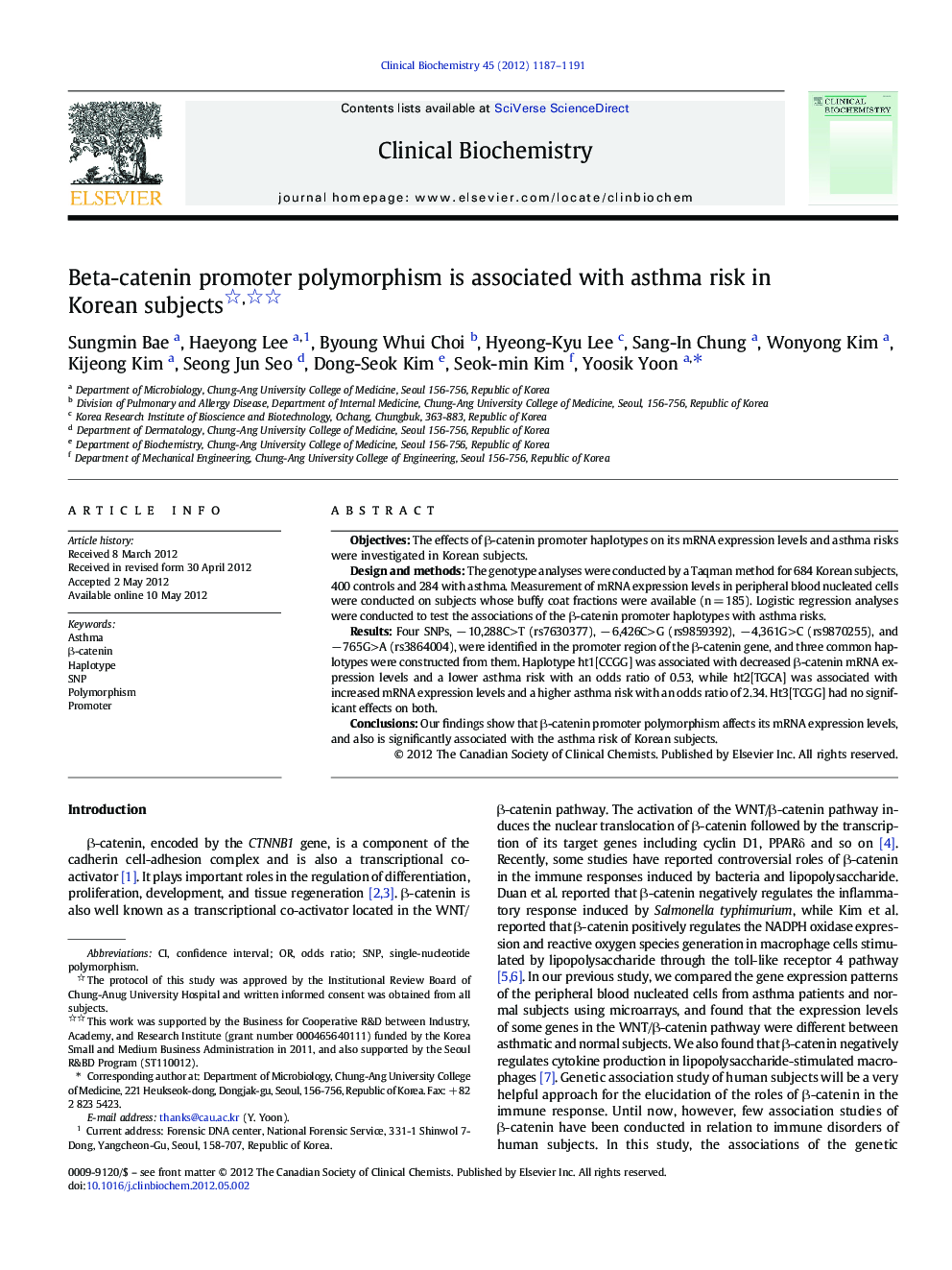| Article ID | Journal | Published Year | Pages | File Type |
|---|---|---|---|---|
| 1968873 | Clinical Biochemistry | 2012 | 5 Pages |
ObjectivesThe effects of β-catenin promoter haplotypes on its mRNA expression levels and asthma risks were investigated in Korean subjects.Design and methodsThe genotype analyses were conducted by a Taqman method for 684 Korean subjects, 400 controls and 284 with asthma. Measurement of mRNA expression levels in peripheral blood nucleated cells were conducted on subjects whose buffy coat fractions were available (n = 185). Logistic regression analyses were conducted to test the associations of the β-catenin promoter haplotypes with asthma risks.ResultsFour SNPs, − 10,288C>T (rs7630377), − 6,426C>G (rs9859392), − 4,361G>C (rs9870255), and − 765G>A (rs3864004), were identified in the promoter region of the β-catenin gene, and three common haplotypes were constructed from them. Haplotype ht1[CCGG] was associated with decreased β-catenin mRNA expression levels and a lower asthma risk with an odds ratio of 0.53, while ht2[TGCA] was associated with increased mRNA expression levels and a higher asthma risk with an odds ratio of 2.34. Ht3[TCGG] had no significant effects on both.ConclusionsOur findings show that β-catenin promoter polymorphism affects its mRNA expression levels, and also is significantly associated with the asthma risk of Korean subjects.
Graphical abstractFigure optionsDownload full-size imageDownload as PowerPoint slideHighlights► Three common haplotypes were constructed from 4 SNPs in β-catenin promoter region. ► β-catenin promoter haplotypes affect its mRNA expression in peripheral blood cells. ► β-catenin promoter haplotypes are associated with asthma risk of Korean subjects.
